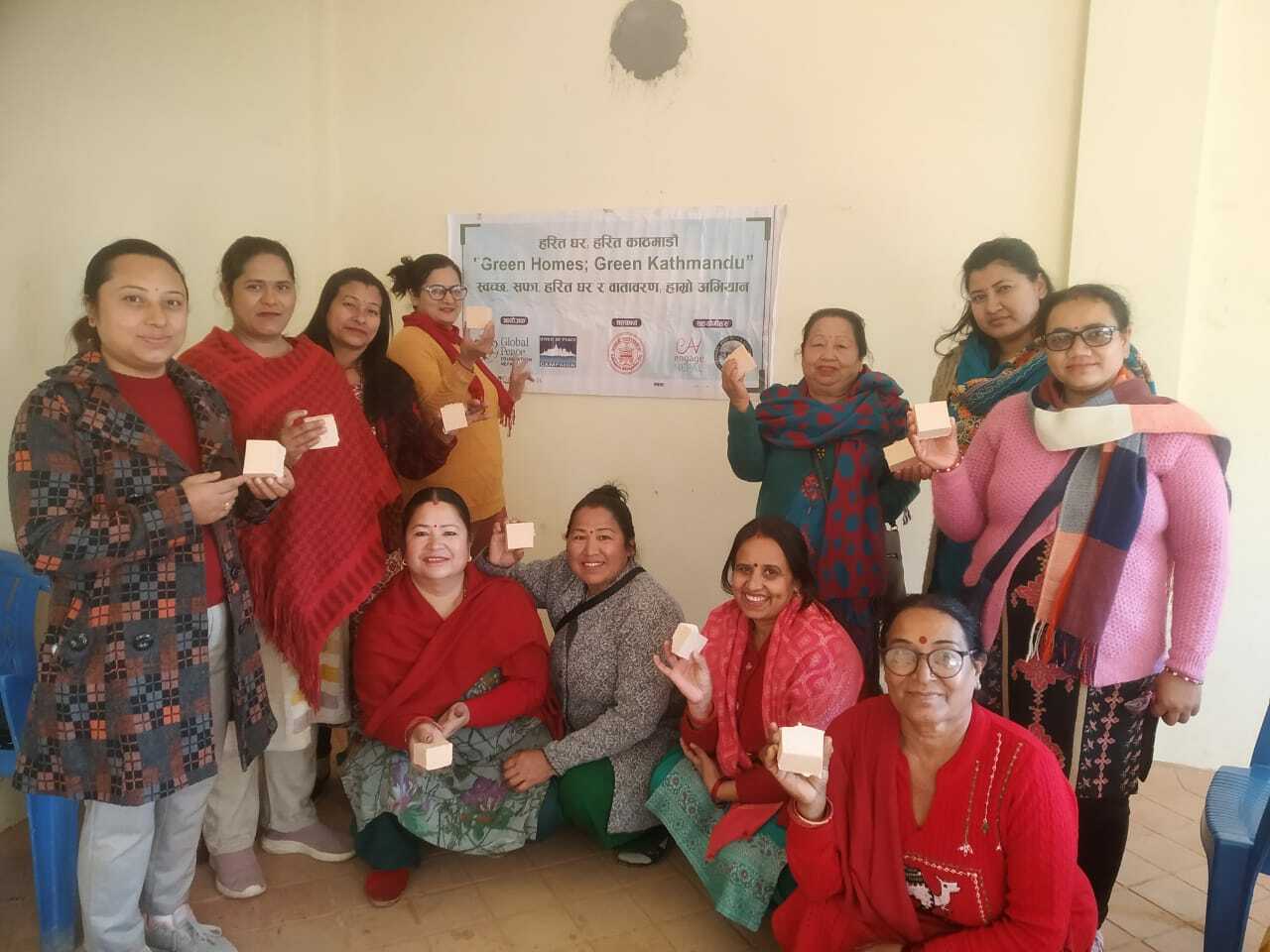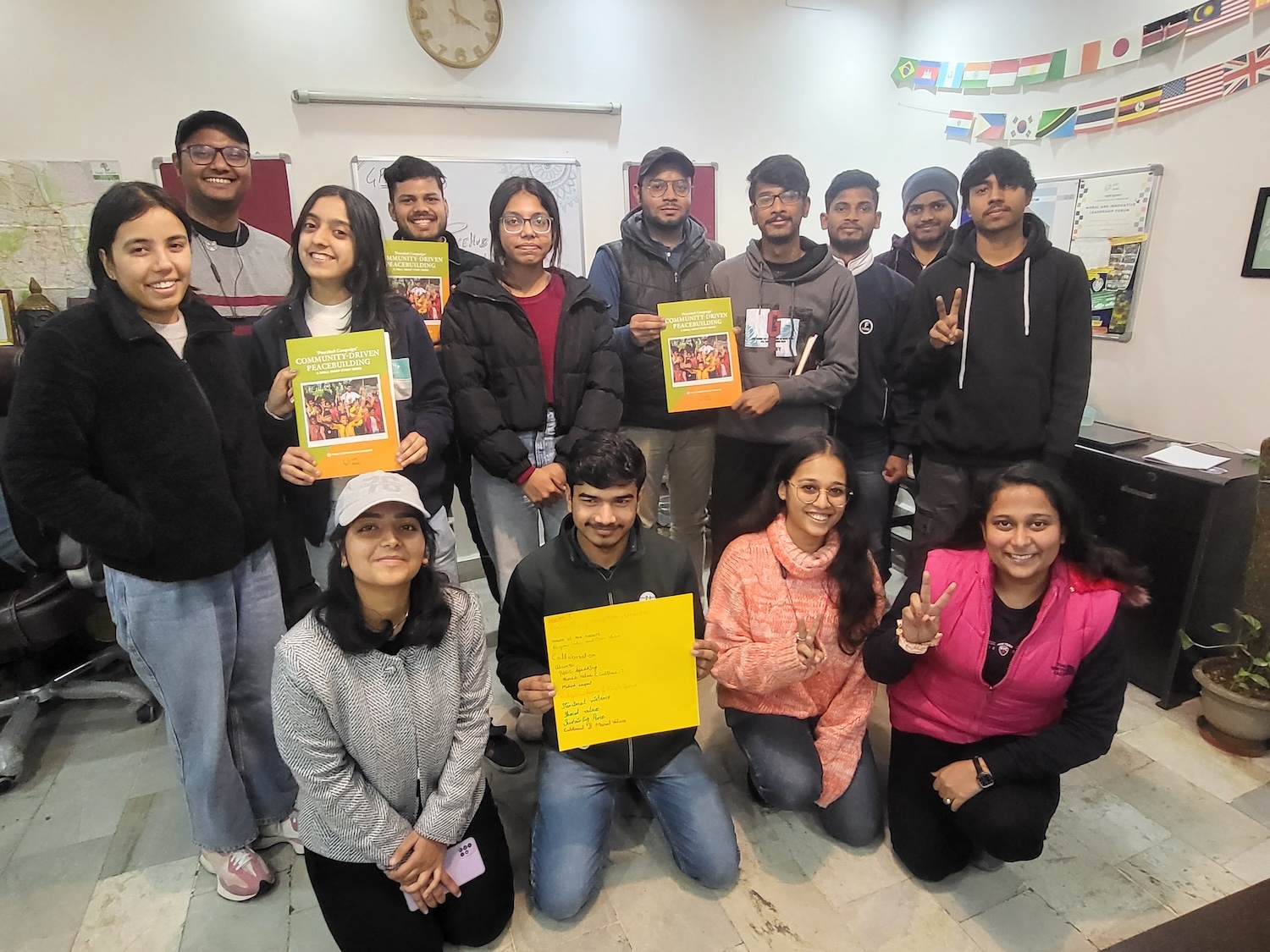By Emiko Perea
Over 600 students, professors, government officials, clerics, and community leaders gathered in the auditorium at the University of Abuja in Nigeria’s capital on November 8-9, 2021, united by the common desire for peace in the violence-torn African nation.
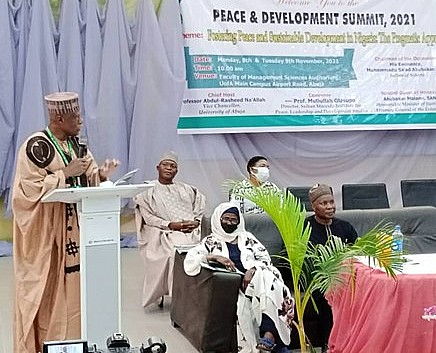
remarks at the 2021 Peace and Development Summit.
The Peace and Development Summit, “Fostering Peace and Sustainable Development in Nigeria: A Pragmatic Approach,” was organized by the Sultan Maccido Institute for Peace, Leadership, and Development Studies at the University of Abuja with support and participation of Global Peace Foundation (GPF) Nigeria.
In an opening address, University of Abuja Vice-Chancellor Prof. Abdul-Rasheed Na’Allah commended the university students for a huge turnout, saying it shows that youth are serious and care for peaceful coexistence and sustainable development. He noted that the summit was convening just days after the university was attacked by bandits, which was a “call for unity” in the university community.
The vice-chancellor also acknowledged and commended GPF Nigeria for supporting the summit, sharing their field experience, and working to build social cohesion in Nigeria.
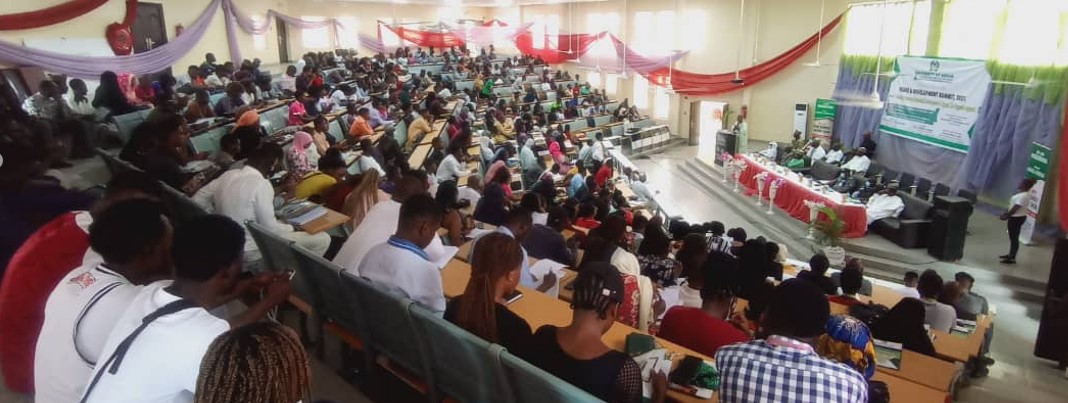
Former Federal House of Representative Speaker Rt. Hon. Yakubu Dogara said that civilization depends on peace as a precondition for social development. Thousands of lives have been lost to farmer/herder conflict, kidnapping, banditry, and other forms of violence within and among communities, he said. Strong and effective leadership was necessary to handle these challenges, the former speaker added, saying that when people are not actively offering solutions to crises they are indirectly promoting them.
Other speakers addressed the challenges to peace and stability in Nigeria, including drug abuse and illegal weapon possession, which contribute to violence in communities and divert efforts toward development.
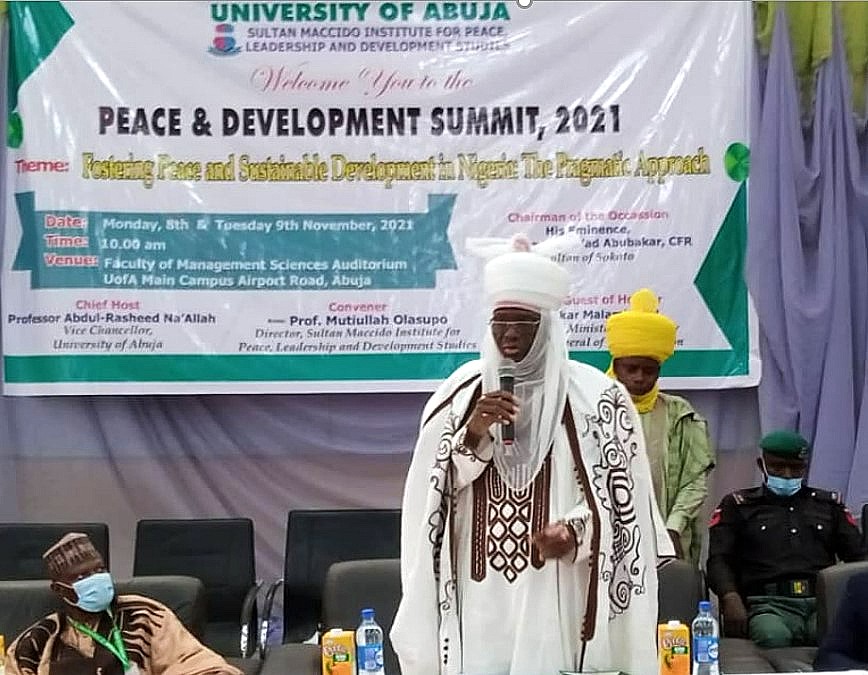
the Sultan.
GPF Nigeria Director Rev. John Joseph Hayab attributed the challenges of conflict and violence to people not viewing each other as members of the human family. He advised students to use the school community as an example: though they are from different states, ethnicity and religion, yet they have one identity in the university as students seating under the same lecturers, with no different exams for Muslim or Christian students or students from the North or South.
Rev. Hayab challenged the university community to embrace the message of GPF Nigeria’s One Family Under God Campaign and to promote the campaign within their respective homes and communities.
One participant, Aliyu Sahabi, said that “regardless of our diversity, we all belong to one big human family, [and] this awareness will help me relate well with people without minding their cultural, ethnic or religious inclination.”
Another attendee called the program “timely, enlightened, and very educative, which will help our youth desist from joining armed groups and committing mayhem in the society.”
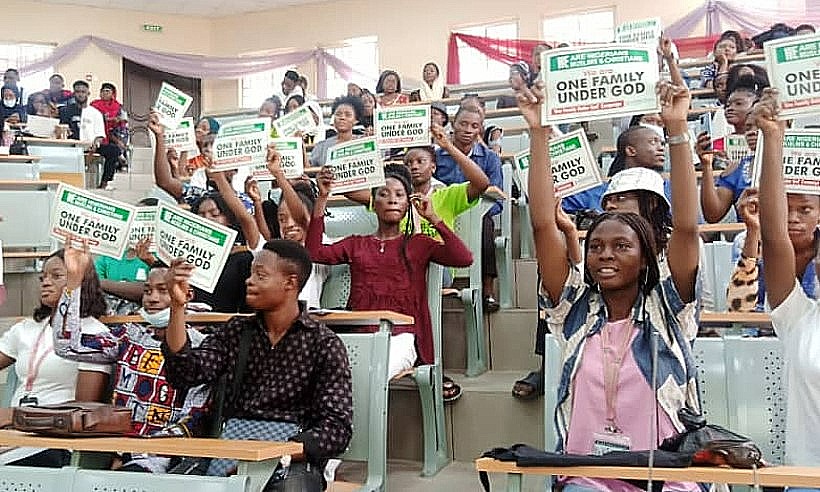
Other distinguished speakers included Dr. Abel Ochigbo, Deputy clerk House of Representatives; and Col. Hamid Ali (retired), Controller General of Customs Service.
GPF Nigeria continues to support peacebuilding and sustainable development in Nigeria through local peace advocacy, non-violent communication workshops, and youth leadership training.
Learn more about GPF Nigeria’s peacebuilding initiatives.
Nigeria media reports on the peace summit:
https://leadership.ng/we-versus-them-syndrome-biggest-nigerias-problem-global-peace/
https://thegleamer.com/foundation-seeks-non-violent-approaches-to-conflict-resolution/

